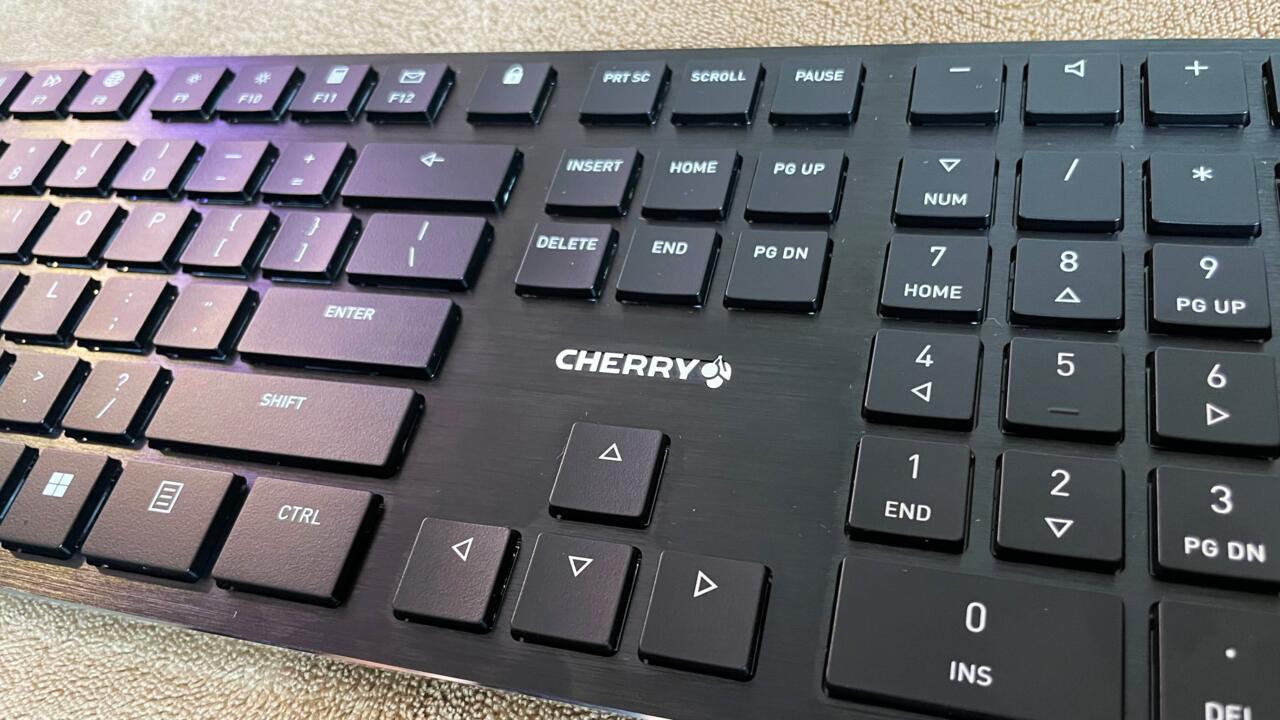Is A Low-Profile Mechanical Keyboard Good For Gaming? Cherry KW X ULP Review
On June 30, 2023, at 1:48 PM PDT, Michael Higham wrote:
Cherry is widely recognised as an industry pioneer due to the widespread use of their mechanical switches in keyboards. If you’ve dabbled in the realm of high-performance keyboards, whether for professional use or competitive gaming, you’re probably familiar with Cherry MX switches and have used them at some point. And you might know the subtle distinctions (and subtle variations) between the clicky, tactical MX Blues and the smooth, direct MX Reds. While the company isn’t known for its keyboards in the same way that competitors like Logitech, Razer, Corsair, etc. are, it does offer a few premium models.
The most recent release from Cherry is the KW X ULP, and I’ve been astonished by the potential of an ultra-slim, ultra-light mechanical keyboard that still uses the full-sized 104-key design, but is it suited for video gaming?

Not entirely is the short answer. In the end, everything comes down to the tactile feedback provided by Cherry’s MX Ultra Low Profile mechanical switches. When compared to a standard membrane design or a thin Apple keyboard, these are vastly superior since they offer a consistent and responsive keystroke with excellent tactility. My main issue is with the responsiveness of these mechanical switches; after each keypress, they feel soft, as if the information were absorbed by the board. It’s as if the secrets sink to the floor a little too deeply before rising again; this phenomenon hinders peak performance in competitive video games and high-speed typing.
The lack of any practical travel range before reaching the actuation point is another major drawback of MX Ultra Low Profile adjustments. Although it claims a 0.8 mm travel distance, its keys only depress when subjected to a force of 65 cN, at which point the keyboard will register the press. This design is a necessary trade-off to maintain the incredibly low profile (0.63 inches in height). Other full-sized mechanical switches provide instant feedback on the actuation force, leading to a predictable feel when pressing down on the switch to activate it. One of the main draws of mechanical keyboards for both typists and PC gamers is the superior precision they provide.
In keeping with my usual procedure when testing new peripherals, I used the Cherry KW X ULP keyboard in Valorant, a fast-paced competitive shooter, and in Final Fantasy XIV, a massively multiplayer online role-playing game, where I employ a more generalised set of secrets for taking part in the game’s systems. Moving quickly and unexpectedly in Valorant was more challenging, notably the frequent use of rapid strafing and bouncing peeping behind corners. It’s not easy to be quick on the draw and consistently position myself to line up pixel-perfect shots because of that tiny stickiness, when the essential recover after letting it go.

In a massively multiplayer online role-playing game like Final Fantasy XIV, nearly every move in the game is connected to a secret, especially when it comes to precise attack rotations and clutch energy abilities for end-game raids. As you get further into protracted court cases against your company, the tension in the keystrokes might wear down your fingertips. I feel compelled to mention that the KW X ULP’s layout (with each crucial socket separated by the board’s chassis), the tactile quality of these switches, and the needed actuation force all suggested that I made less incorrect inputs. In contrast to when I use keyboards with my preferred Cherry MX Red changes, I never found myself using the wrong ability or striking the wrong type in the heat of battle while using the KW X ULP. If you tend to make mistakes, you can at least rely on the MX Ultra Low Profile to help you out.
The Cherry KW X ULP is, without a doubt, a wonderfully refined piece of technology that looks fantastic thanks to its understated design. It weighs only 22 ounces because to its plastic base and minimalist brushed-aluminum top chassis. The white backlighting is bright and clear, and the distinction between each personal need gives it a clean look that is also important for the user experience (as Final Fantasy XIV demonstrated). These low-profile switches are designed to be quiet, so they won’t make the satisfying “thock” sound that’s become synonymous with mechanical keyboards. However, they still make about as much noise as my Keychron K4 with dampening rings.
The KW X ULP is a wireless keyboard with a responsive 2.4 GHz dongle that tracks my inputs during gaming and Bluetooth capability for portability across devices. It can be connected through USB-C connection (which also serves as its power source). And in terms of battery life, this keyboard will last for quite some time after a full charge; I’ve used it for two weeks straight in both professional and gaming settings, totaling about 100+ hours of use with backlighting set to its maximum, and I’ve yet to need to plug it back in.

Not that I expected it to be, but this keyboard isn’t a programmable one. And at least in the realm of gaming keyboards, personalization is one of the major draws for some. Replacement keycaps, earphone rings that dampen noise, and individualised lighting schemes are not an option. Features like volume-locking passwords and Windows key protection are included, but otherwise, you’re just getting the bare minimum.
The small profile, comprehensive design, cordless capability, and relatively quiet keystrokes make this a wonderful keyboard for the office. From a typing perspective alone, the advantages of a mechanical keyboard are slightly diminished by the squishiness of the switches. It’s not advertised as a gaming keyboard, but if you find the idea of a mechanical keyboard with an ultra-slim design appealing and were hoping this might deftly bridge the gap between the two, you might be disappointed to learn that it falls a little short in a few key areas.
Cherry has been around for a long time, and this isn’t the first low-profile mechanical keyboard on the market, but it is the latest. Given the slower typing speed and less satisfying overall feel when compared to keyboards with full-sized mechanical switches, we can’t really recommend this design. The Cherry KW X ULP performs admirably, but it’s not “$250 great.”
In a moment, we’ll examine Cherry’s MX-LP 2.1 low-profile mechanical keyboard, a model specifically made for video games. It’s not quite as slim as some others, but it uses the 65% compact design, features slim-fit keycaps, and MX Silver Speed tweaks.
Each of the topics discussed here was hand-picked by at least one of our editors. If you make a purchase after reading about it on GameSpot, we may get a commission.

























